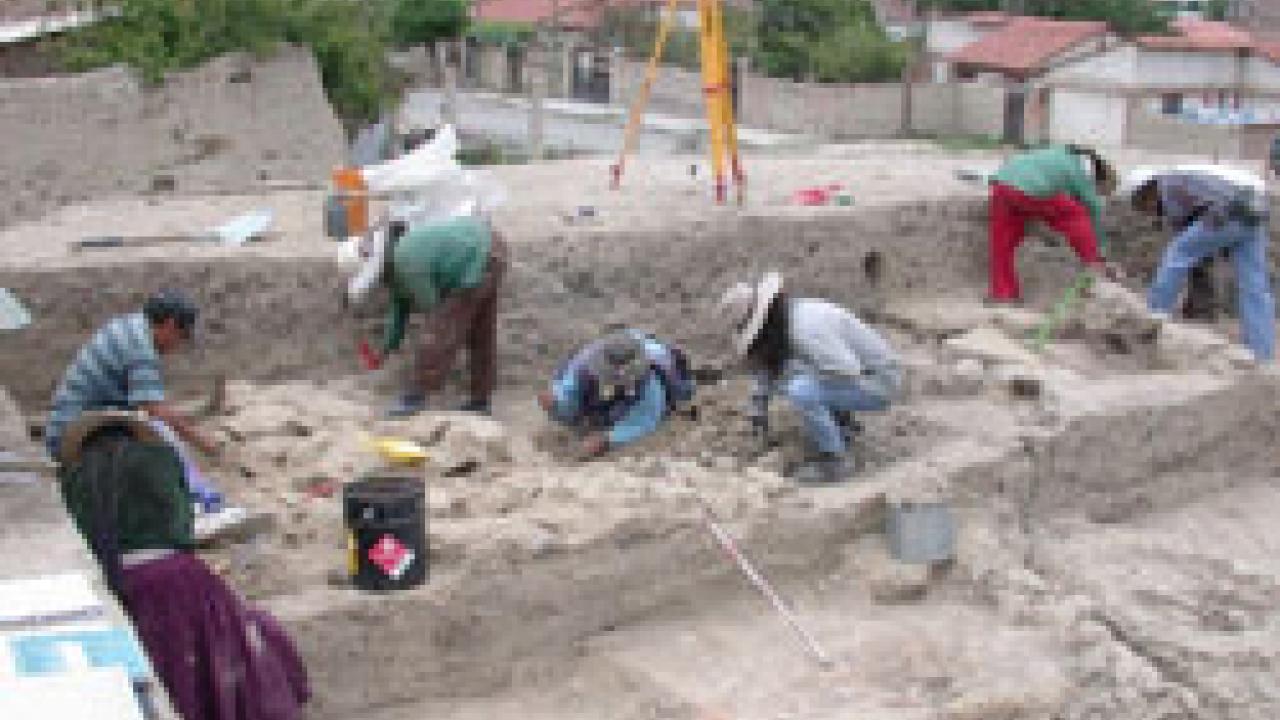The University Research Expeditions Program has returnd from hiatus and recently announced its new trips for 2004.
The program provides opportunities for the public to join UC scientists on research projects investigating issues of environmental, humanistic and economic importance throughout the world. It also endeavors to benefit host countries through collaborations with other universities, museums and institutions.
Approximately 150 participants take part annually, each becoming an active team member on their chosen expedition.
This year's program consists of approximately 10 trips, each of which will offer 10 to 12 slots for volunteers. Upcoming programs include studying alternative forms of eco-tourism on tropical Lombok Island in Indonesia, documenting unusual dyeing and weaving techniques in Laos and Thailand, and excavating the ancient, fortified settlement of Gorbatka in the Russian Far East.
Since its beginnings in 1976, UREP has sent hundreds of teams all over the globe, contributing to a knowledge base about indigenous cultures and helping to preserve threatened ecosystems. Under the direction of project leaders, volunteers share in field work and general camp responsibilities. Costs related to the travel are usually tax-deductible.
Begun by Jean Colvin of UC Berkeley, the program migrated to UC Davis in 1999, where it was initially located within University Outreach and International Programs. In 2004 it is being run by UC Davis Extension -- a logical choice, since the extension program is focused on community outreach, said Cynthia LeCount Samaké.
Samaké now heads UREP as academic advisor, and Judy Shearer serves as director of special programs at UC Davis Extension. Samaké, who also teaches the environmental design department course World Textiles, has led research expeditions and study tours to South America and Southeast Asia.
The program has been on hiatus due to the lack of interest in traveling abroad that occurred after Sept. 11, 2001, Samaké said. "People now seem to be traveling with as much gusto and intrepidity as before. So the program is once again moving ahead at full speed," she said, noting that the alliance with UC Davis Extension will greatly improve UREP's visibility.
The program also will tap into UC Davis Extension's enrollment system, which will facilitate processing," she said. Participants will now be able to enroll online using credit cards.
Research expeditions set for 2004 include studies involving:
- Threatened salmon and steelhead in the giant redwoods of Mendocino County -- March 27-April 9;
- The ecology of periodical vicadas in the forests of Pennsylvania and Virginia -- May 15-28 (Pennsylvania) and June 5-18 (Virginia);
- Textiles and temples of northeast Thailand and Laos -- June 20 to July 3;
- The archaeology of fortresses before and after the Inca conquest in Cayambe, Ecuador -- July 3-16, July 17-30, and a month-long field school, July 3-30;
- Conservation museum development and excavation at the Pinami Mound Site of Cochabamba, Bolivia -- July 5-18, July 19-Aug. 1, Aug. 9-22, and Aug. 23 to Sept. 5;
- Restoring tropical trees in southern Costa Rica -- Aug. 1-14 and Aug. 15-28;
- Festivals costumes and textiles of Oaxaca, Mexico -- Aug. 8-21;
- The healing tradition of Thai Yoga at Wat Po (Bangkok) Thailand -- Aug. 10-23;
- Frontiers of Chinese trade and conquest during the Middle Ages: excavation in the Primorye Region of the Russian Far East -- Aug. 14-27; and
- Coconuts, culture and coral: conserving tropical diversity on Lombok Island, Indonesia -- Sept. 2-12.
For more details, call (530) 752-8811 or see www.extension.ucdavis.edu/urep.
